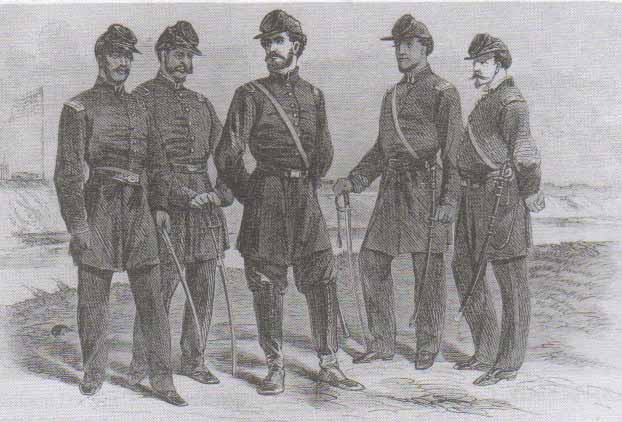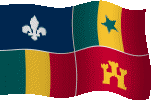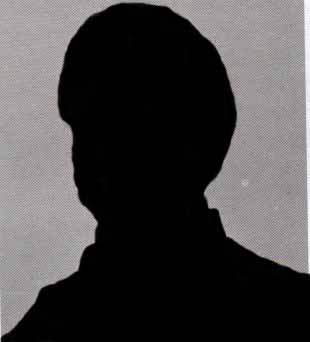Andre Cailloux, a Black Creole who was born a slave, attained freedom, carved out a niche for himself and his family as an artisan in the antebellum Afro-Creole society of New Orleans, and died a U.S. Army captain and Civil Was hero whose courageous example continue to inspire civil rights activists in New Orleans down into the mid-twentieth century.
The life of Captain Andre Cailloux, a thirty-eight-year-old Afro-Creole had ended two months earlier, on May 27, 1863, as he gallantly led Company E of the 1st Regiment of Louisiana Native Guards in a doomed assault on the Confederate bastion at Port Hudson, Louisiana.
He landed as the nation's first black military hero, one of the first black men to hold an officer's commission in the United States Army, and a member of the first black regiment to be officially mustered into the Union army and to engage in a major battle.
Claude Paschal Maistre one of the earliest white radical voices in New Orleans and practically the sole public champion of abolitionism and racial egalitarianism among the local Catholic clergy.
Maistre would perform
the funeral rites of his church in defiance of New Orleans' formidable archbishop,
Jean-Marie Ordin, who, like Maistre was a native of France.
A black patriot and a radical white priest: two relatively ordinary men transformed
by their responses to the crisis of war into symbols of freedom and hope for
people of color in New Orleans and of dangerous radicalism to many southern
whites.
 |
Sketch of Captain Cailloux's
funera procession |
|---|
To Creoles, this funeral for one of their own attested to their capacity for patriotism, courage, and martial valor. They also intended the public tribute to atone for the desecration of Cailloux's corpse, which had lain neglected and rotting on the battlefield for forty-one days until the surrender of the enemy fortress.
As word of the captain's death had filtered back to New Orleans, women of color had donned crepe rosettes in mourning.
Immediately after the Confederate surrender of Port Hudson, black troops recovered Cailloux's body, identifiable only by a ring in his finger.



